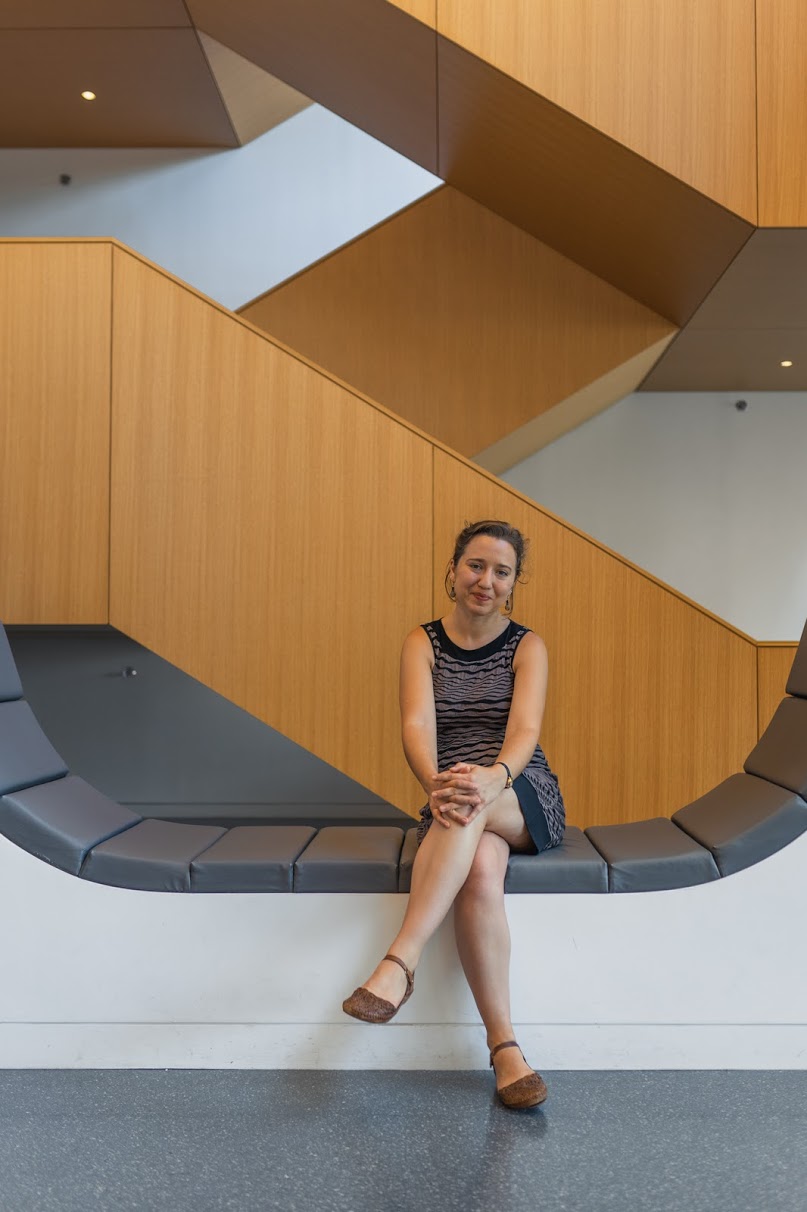Many Union students participate in Clinical Pastoral Education (CPE) programs while at seminary. Our CPE profiles give insight to what students learn. Naomi Madaras is a Master of Divinity student at Union in her second year with a concentration in Psychology and Religion. This summer she completed her CPE at New York Presbyterian Allen Hospital in Inwood.
For someone uninitiated in CPE, can you tell me what it entails?
CPE emerged from a Christian-centric perspective that has been changing over the years. The idea is to prepare individuals going into any type of spiritual care to be able to improve their listening skills. It’s often done in a hospital, but it can also be done in hospice care or a prison re-entry program. I interviewed at three different places to get a feel for the supervisor I wanted to work with, and when I interviewed at the Allen I really connected with my supervisor Joseph and enjoyed his energy. I chose to work in a hospital because I’m interested in working with people struggling with illness and issues of death and dying. A typical CPE week is 40 hours and you usually spend a day and a half in a cohort with your peers. My cohort was 6 students and we would meet on Monday for a lecture and to share our experiences. We would analyze our conversations with patients, explore the biases and preconceptions we had, and discuss what we could do better.

How have your listening skills changed through this experience?
I take more time with listening and it’s been really important for me not to rush. Working at a hospital in a chaplain role where I had authority was helpful, as it gave me the authority to ask probing questions like “What do you mean” or “Can you tell me more about that”. Beforehand I would feel nervous going that deep with someone and asking questions like that.
Do you have an experience you can share about asking these probing questions?
I spoke with a woman who immigrated to the United States from Turkey as a young girl. She was 98 years old, yet incredibly sharp and talkative, and wanted to talk about her parents and childhood. The majority of people I spoke with at The Allen have had traumatic experiences as immigrants or refugees, so many of their memories are connected to these. I would ask questions like “tell me more about your father” or “what was your mom like”, which opened a door for her to tell me about her life. Hospitals can often feel cold when staff are constantly in a rush and have no time to talk with patients, so it was important for her to have someone to talk to.
How did your experience with CPE deepen what you learned in your first year at Union?
It put into practice a lot of what I had learned. I took a course on pastoral listening in the Fall and found it frustrating at times, but there were pieces of information I found myself using in interactions with patients. It was also special to connect with people outside of Union. Everyone in my cohort was from different backgrounds religiously and educationally, so it was exciting to connect without the competitive nature of the classroom. The big change from the academic year to the summer was doing more personal growth because the academic and personal are all wrapped up in this CPE unit so I grew a lot more during these ten weeks.
How did you develop the skills to care for yourself during your CPE?
One of the hardest things for me was when I saw patients in the hospital, and staff members too, who struggled beyond their stay in the hospital. I heard stories of people experiencing trauma, who were living on the streets, and often felt frustrated by the siloing of issues and what I could do in my position. I recognized that I’m a chaplain, not a social worker, and this helped me know what I could reasonably respond to. I realized I’m not supposed to be my patients’ friend, which was hard because I wanted to be liked by patients and make them happy. I also had to conserve my energy because it takes a lot to be with people for 8 hours a day, so learning to be intentional with caring for myself in my own life was important.
What advice would you give to a student applying for CPE?
I suggest interviewing at several different places and making sure you find a supervisor you respect and connect with on a personal level. I appreciated my supervisor’s approach to pastoral care, his understanding of intersecting systems of oppression, and his sense of humor throughout. I also say remember that your life is not CPE and you have a community outside that you can rely on, so make sure you’re still fostering those relationships. It was very important to have friends who could support me, provide me with pastoral care, and remind me that I’m not alone in this.
What is one thing you want to take from your CPE into this upcoming year?
I’ve learned a lot about conflict. I grew up in a family where conflict wasn’t acceptable, so I’ve been learning how to see conflict as creative energy rather than something bad which results in abandonment. I witnessed conflict in CPE between people in the group, and between myself and others in the group, and it scared me so much. Yet I also experienced going through conflict and seeing how the relationship was preserved and even strengthened at times. I want to bring that into my second year at Union and be more assertive when I disagree. I have to remind myself that conflict in its best form can be a generative experience, of taking the risk to be honest with someone else and value the relationship enough to disagree.
